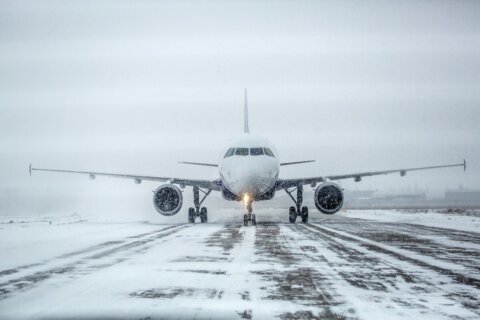As the weather warms and the school year comes to a close, lots of families are planning to hit the road.
For many, it’s a great time to visit places and people near and far away. However, it’s also important during this busy travel season to take some precautions.
Here are some things to keep in mind — and ways to stay safe and healthy — if you’re planning to travel with your family this summer:
1. Airplanes are filthy.
We all know it. But, were you aware that research has been done to identify patterns of infectious disease transmission in the friendly skies? Although there are no comprehensive guidelines, we do know that airplane tray tables are infrequently cleaned. Given that, packing wipes to clean the areas your family will be touching — like the tray table, armrests and headrests — is not a bad idea.
Window seats are better protected from the constant aisle traffic, providing a slightly better position to avoid germs. Regardless of where you sit, however, remember the pockets on the backs of seats in airplanes are never cleaned. The pockets often hold trash, dirty Kleenex tissues, food and other nasty items. So keep your stuff out of there.
[See: 6 Health Hazards to Watch Out for This Summer Other Than Skin Cancer.]
2. Flying with a baby? Get cozy.
I recommend my families “wear their infant” — using a baby carrier — through the airport. Not only will you be hands-free to carry all the packages and luggage, but it will also decrease the need to put the baby down in potentially dirty areas.
The best baby carriers hold your baby snugly and securely to your chest, allow you to easily see your child at all times and have a supportive back to keep your baby’s chin off his or her chest. Using a baby carrier also creates a natural barrier that discourages strangers from getting close enough to admire your little one and accidentally share some germs.
3. Zika is still a thing.
Just because the Zika virus isn’t in the headlines doesn’t mean it’s no longer a threat. If you’re traveling to the Caribbean, South America, Mexico, Africa, Asia or the Pacific Islands, Zika precautions still apply for pregnant women and those planning to get pregnant in the near future.
Talk with your health care provider about potential risks and precautions, including safer sex practices during the trip and after your return, if you do travel to an area where Zika has been transmitted.
4. Always insist that everyone in your family wear a seat belt.
Whether you’re driving on a local highway or the Autobahn, motor vehicle accidents remain a risk for travelers. Use proper restraints for your kids, including rear-facing car seats for toddlers and booster seats until kids reach a height of 4 feet 9 inches; and make sure everyone under the age of 13 years rides in the back seat. And, of course, never drive under the influence.
[See: 10 Fun, Fresh Ways to Work Out Together as a Family.]
5. Get your shots.
Any international travelers 6 months or older should be protected from measles with the measles, mumps and rubella vaccine. For individuals over 1 year, optimal protection is two doses of the MMR vaccine separated by one month before international travel.
Six weeks of life is the earliest a baby can get vaccinated with many other routine vaccines. If you are traveling with a 6-week-old, it may be worthwhile to get the little one vaccinated before the trip. Talk to your child’s doctor about this.
6. Remember to follow basic food safety practices.
If traveling in a high-risk food area, don’t eat anything unless cooked thoroughly. Only eat thick-skinned fruit that you’ve peeled yourself.
In places where there’s a risk that drinking or potable water may be contaminated, remember that ice could be contaminated as well. Only drink bottled water in such places. And avoid drinks with ice, smoothies and blended cocktails.
7. Wash your hands after using the bathroom and before you eat.
Use soap and water. Take your time. Hand sanitizer does not kill all the germs that can make you sick. Honestly, washing your hands is so basic and powerful. If you do nothing else, make sure you take extra time to regularly and thoroughly clean your hands while you travel.
8. Hydrate .
Water is critical for your body systems to function, including your immune system. Flying is terribly dehydrating, especially if you have a cocktail. Be sure to travel with a water bottle, and refill it when you can.
A good goal is to consider what you weigh in pounds and consume half that number in ounces of water per day. (For example, a person who weighs 150 pounds would aim to drink about 75 ounces of water per day.)
[See: 10 Things Pediatricians Advise That Parents Ignore — and Really Shouldn’t.]
9. Take a few things from your medicine cabinet with you.
When traveling with kids, don’t forget to pack a few items from the medicine cabinet. This includes ibuprofen or acetaminophen, a bottle of Pedialyte, a few Band-Aids and antacids. I hope you never have to use these things, but you will be thankful to have them if you do.
More from U.S. News
11 Ways Healthy Community Design is Working
16 Ways Your Body Adjusts to a New Climate
5 Wacky Ways Real People Have Stayed Active While Traveling
Family Travel: How to Stay Safe and Healthy Wherever You Go This Summer originally appeared on usnews.com







